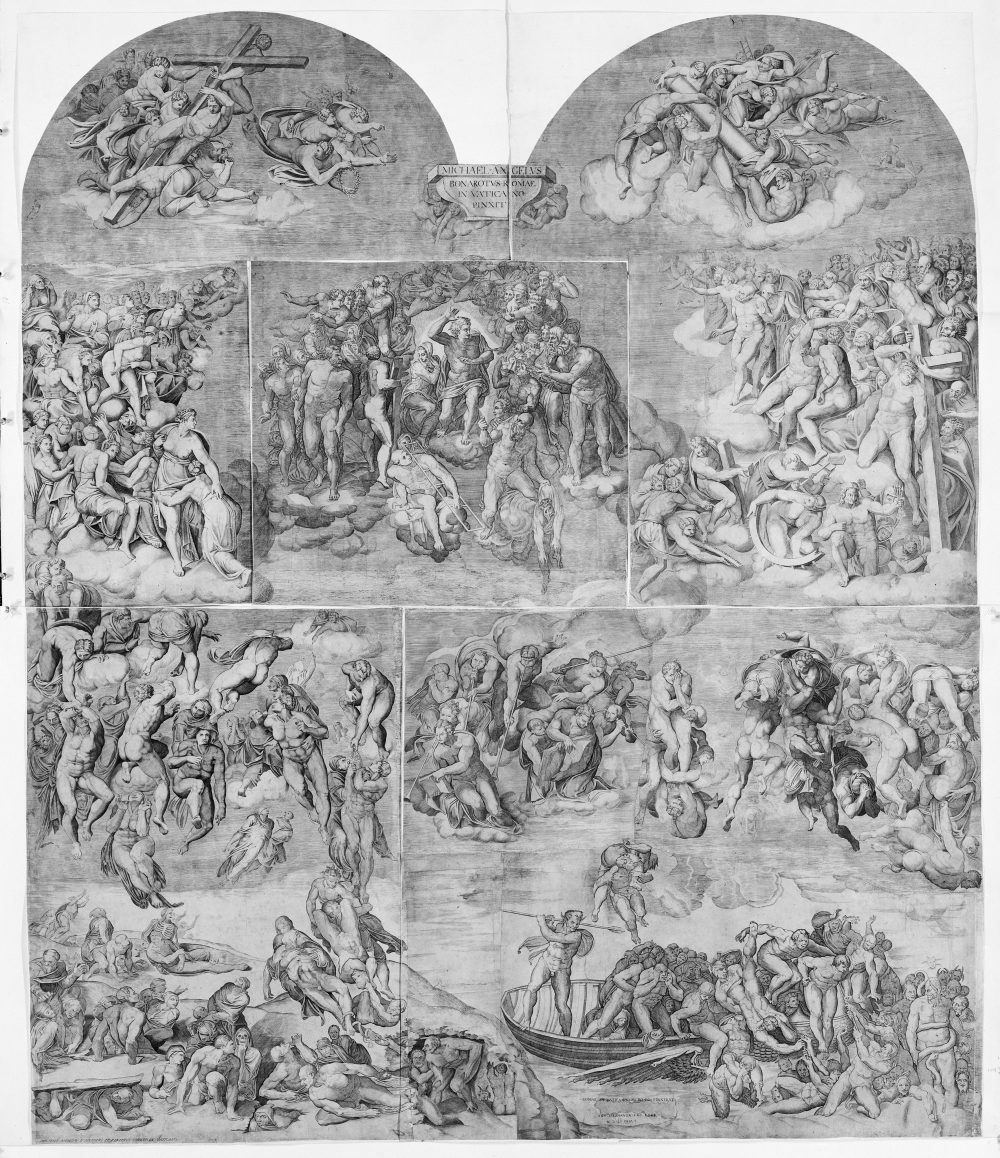
Metropolitan Museum of Art, New York, www.metmuseum.org
The subject of this passage is the participants’ discussion about the presentation of the books of life. M. Ruggiero is of the opinion that they should not be presented haptically.
“M. Silvio replied: ‘What do you say about the two open books, which are with the group of seven angels sounding trumpets?’.
M. Ruggiero said: ‘I think the truth is that there will be no books’.
‘How can that be?’, replied M. Silvio. ‘Haven’t you read the revelations of Saint John in which it is written that the books will be opened? Does not the Church sing of the bringing out of written books, in which we will see all of our deeds recorded?’
M. Ruggiero said: ‘It is true that one reads what you say, but in reality the only books that will be produced will be the books of conscience. And so you don’t think I’m expressing an idiosyncratic view, I want to prove it’s by quoting Pauls letter to the Romans in which he said, «their conscience bearing witness to them, and their thoughts between themselves accusing, or also defending one another, in the day when God shall judge the secrets of men». I will also add, on this point, a saying from the book of Wisdom: «For inquisition shall be made into the thoughts of the ungodly», meaning that on that day our consciences will be on able to conceal, either in words or in thoughts, any sin committed. For this reason it was said that books will be opened. But if they truly do have to appear, I don’t believe that they are probably placed so low down, in a position there they can neither seen nor read, given that the people are placed high up, as you can see’.”
“Rispose M. Silvio: ‘Che dite voi dei due libri aperti, che sono in quel groppo de’ sette angeli che suonano le trombe?’.
Disse M. Ruggiero: ‘Penso che vero non sarà che libro alcuno si mostri’.
‘Come no?’, replicò M.Silvio. ‘Non avete voi lette le Revelazioni di San Giovanni, ne le quali si legge che i libri saranno aperti? Non canta egli la Chiesa che i libri scritti si caveranno fuora, ne’ quali ogni nostro fatto notato si vedrà?’.
Disse M. Ruggiero: ‘È vero che si legge cotesto che voi dite, ma in vero non saranno prodotti altri libri che la consienza; et acciò non pensiate che io questo di mio capo vi dica, vi voglio dar per testimonio Paolo a’ Romani, dicendo: «Rendendoli testimonio la consienza loro et i pensieri che tra sé stessi accuseranno e difenderanno, in quel giorno che ‘l Signore giudicherà le cose occulte degli uomini». V’aggiungo anco, a questo propogito, un detto de la Sapienza: «Ne’ pensieri degli empi saranno le loro interrogazioni»; conciossia che le nostre consienze quel giorno non potranno occultar peccato alcuno di fatto o di parole o di pensieri. Per questa ragione s’è detto che s’apriranno i libri. Ma quando veramente comparire dovessero, non mi pare che sieno ben collocate in quel basso luogo, nel quale non possono esser veduti né letti, stando le genti in alto come vedete’.”
Gilio 2018, 176-177, n.264-268, fig. 19-22



